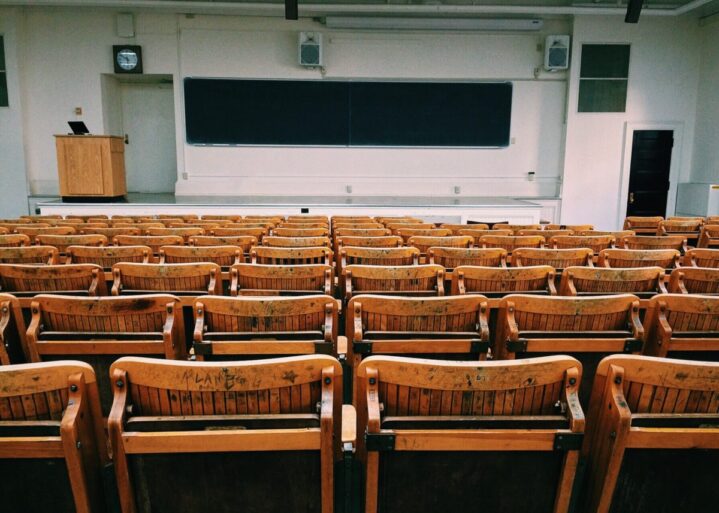
Post pandemic education
It doesn’t seem that the world we are going to disembark after the pandemic is the same world we left. The virus originating in the interior of China shook the planet and quarantined the population. The virus arrived leaving the future behind, with plans, works, commitments and projects suspended. Since March 11th, when WHO declared the new coronavirus pandemic, life has changed dramatically.
Suddenly, we face one of the greatest crises in recent human history. There are thousands of victims, a collapse in the health systems, a legion of unemployed, closed borders, children without classes, remote working from home, a melted economy and stopped industries. The global crisis will have numerous negative impacts. Besides the deaths, we risk a generalised recession that will increase social inequality and leave vulnerable people in even more critical situations, and others aggravating circumstances.
While humanity waits for a vaccine against the disease, we begin to experience a “new normal” – which seems to have nothing normal. The pandemic is reshaping the way we relate to the world, to others and to ourselves. It is the moment to try to put a face on that future that awaits us – and scares. However, is important realise opportunities can also arise.
Regarding the education area, with the pandemic, millions of people are being educated thanks to the digital breach that has allowed develop new pedagogical approaches with the use of technologies. This involuntary situation brought innovation to a sector that is resistant to the winds of change. Ultimately, education will have to reinvent itself. The use of technology in the classroom and including the adoption of hybrid education. Perhaps, less expository classes and the student being at the centre of the learning process.
Undoubtedly, the appreciation for the teachers who were transformers agents needed to reinvent themselves during this challenging process. Allied to remote classes, the teachers followed a training course, where the students were encouraged to reflect, awake critical thinking, evaluate the results indeed. The teachers became cognitive architects and preachers of collective intelligence, after the period of isolation in which parents were able to follow the process of educating their children, these are changes that remain in the post-Covid-19 future.
It needs a world educational community that trains analytical skills from childhood, exercising a new way of thinking. Some schools already have dynamics to exercise data visualisation in their initial grades, making children develop critical and analytical sense from an early age. Without working on this analytical mentality, we will continue to repeat old protocols that lead us to already known errors. We will emerge from this crisis more analytically, using science and data as strong allies for the future.
The background of analytical culture is still incipient in the academic environment. Such a deficiency does not prepare students to think systematically, analyse the data, make decisions and monitor the metrics of the impact of actions. Usually students do this empirically, based on previous beliefs and experiences, but not on data. Analytical culture does not compete with creativity. Humanised decisions are enhanced through data guidance. It is a reality of almost all countries of the globe.
Still, it is up to governments to provide investments and technologies to increase the reach of education through the digital platform. From now on onwards, the combination will be face-to-face teaching with remote learning. Never one will cancel out the other because in-person education is the basis of solid teaching. The teacher is the learning reference for the student always. Nothing may substitute it. It is paramount. As the diary interaction with the schoolmates as well. The beings have to socialise to build social bonds. The school environment is important for socio-emotional development. To communicate and express with others, to live with differences, to work in groups, to expose ideas and arguments, to be reliant to face problems. Digital education should work like a complementary tool.
Making part of continuous education, themes such as technology and affectivity, work, science, food, cities, new economies, spirituality, environment, behaviour, health, politic, a post-pandemic civilisation certainly will be more award for the conscious choices can contribute to build a path to a more desirable future. Considering educational adaptation is the key for transforming the education system, the trend that has come to settle down and attend to the changes brought by the pandemic will be a watershed.
The essential relationships are more empathic and we will have the chance to create new narratives for the concept of humanity. It is possible to see beauty in the midst of chaos. The name of this is hope and education is a great startup to multiply it. This moment makes me remember a speech of the youngest Nobel Prize winner, when she was 17 years old: “I will get my education – if it is in home, school, or anyplace.” – Malala Yousafzai. This determination is inspiring.
Apparently, the storm will pass. When it passes, of course it will be different. Far being pessimistic, we have to be prepared for the next pandemic or any other break of the world. Yet, a valuable insight would be continuous motivating and developing of tools into educational methodology applied during pandemic.



